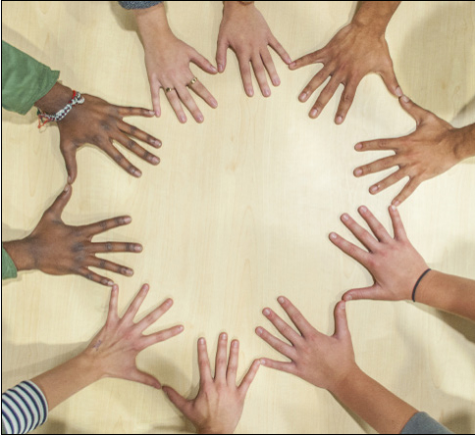Ferguson addressed in Ellensburg meeting
October 23, 2014
In light of the events in Ferguson, Mo., residents of Ellensburg convened during a town hall meeting, discussing everything from racism to police-community relationships.
“Racism is the belief that I can tell something about your potential capacities, based on your outward characteristics,” Nelson Pichardo-Almonzar, professor of sociology, said. “It means you don’t like somebody based on their group assignment.”
Pichardo-Almonzar said that, though racial conflict is common, heated interaction is never a random act.
“All ethnic and racial conflict is driven by the conflict of resources,” Pichardo-Almonzar said. “If you don’t have anything, I don’t give a shit about you; stay where you are. But if you’ve got a gold mine on your land… I want that gold.”
Pichardo-Almonzar related this observation to the recent shooting of Michael Brown in Ferguson, Mo. He said that even among these social groups, there is a resource to be fought for.
 Photo Illustration by Alyssa Darby
Photo Illustration by Alyssa Darby
Pichardo-Almonzar said that the resource being fought for in Ferguson’s case could be anything from the right to vote, to simply not being harassed by the police.
“What people want,” Pichardo-Almonzar said, “is the right to live their lives the way that they want to… peacefully.”
On Wednesday, Oct. 8, 2014, Central hosted a town hall meeting to address the rising tension regarding the Ferguson case.
The militant tendencies of the police force in Ferguson have brought up concerns regarding police brutality.
“Racism happens all the time,” said Central diversity officer Veronica Gomez-Vilchis. “It can happen on campus. It can happen in town. It can happen anywhere.”
Gomez-Vilchis said that every individual is biased. Each person has certain habits and judgements that are made, but it is how a person reacts to a situation that matters in the end.
“If you act on that bias,” Gomez-Vilchis said, “you’ve just discriminated against that entire population and you can’t take it back.”
She also said that media plays a large role in the stereotypes we perceive. Without education and exposure, some communities only see their ethnicity from the viewpoint of the media.
Others have the media as their most readily available source of information, and what they see is what they believe is true.
“How do you think it would feel, for kids, to see that their ethnicity is always portrayed in a bad light?” Gomez-Vilchis asked. “They see it. They get fed it… so eventually they go down that road.”
Pichardo-Almonzar said that, though it should be, credibility in media is not reliable in every medium.
“The media is presenting this in contrasting ways. If you watch MSNBC, Michael Brown is a poor victim of police brutality. If you watch FOX, Michael Brown was a criminal, who shouldn’t have drawn the attention of the police,” Pichardo-Almonzar said, regarding the Ferguson case.
During her work with Bridges, a social outreach project, Gomez-Vilchis encouraged all age groups to question the information found in the media, and to look to multiple news sources for information.
“It’s all about ratings. It’s all about bringing in money.” Gomez-Vilchis said. “Don’t believe the media; you don’t have to be what they say you are.”


